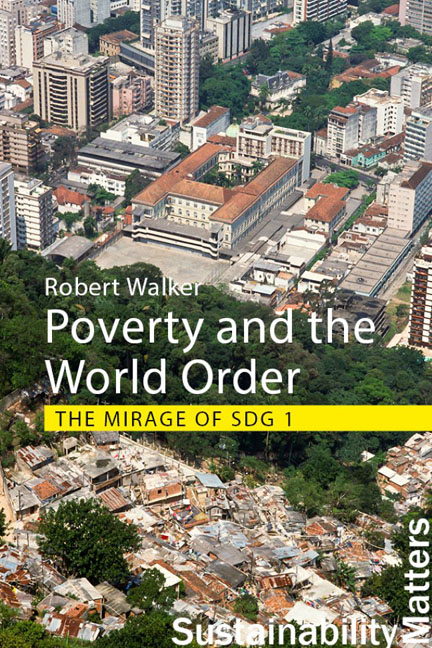Book contents
- Frontmatter
- Contents
- List of figures, tables and case studies
- 1 SDG1 and the nature of poverty
- 2 Progress to 2015
- 3 The origins of SDG1
- 4 Progress since 2015
- 5 The impact of Covid-19
- 6 Tackling the root causes of poverty
- 7 Global governance and its limitations
- 8 Relying on “we the people”
- 9 Towards a moral world order
- 10 A postscript
- Glossary
- References
- Index
9 - Towards a moral world order
Published online by Cambridge University Press: 23 January 2024
- Frontmatter
- Contents
- List of figures, tables and case studies
- 1 SDG1 and the nature of poverty
- 2 Progress to 2015
- 3 The origins of SDG1
- 4 Progress since 2015
- 5 The impact of Covid-19
- 6 Tackling the root causes of poverty
- 7 Global governance and its limitations
- 8 Relying on “we the people”
- 9 Towards a moral world order
- 10 A postscript
- Glossary
- References
- Index
Summary
The SDGs are a quest for human progress. They symbolize the call that all recognize a shared humanity, acknowledge human failure and accept responsibility for together building a better world. They are equally products – some would say tools – of global politics and the gulf between the aspiration for a better world and the political reality is enormous. The intention in this chapter is to identify means of bridging this gulf.
In the 2000s, the Millennium Development Goals (MDGs) served to protect the United Nations (UN) when under attack by powerful nation states that view intergovernmental organizations as threats to their sovereignty (Chapter 2). The SDGs continue to give the UN credibility: no politician will be elected on a mandate to increase poverty; hence, it is difficult to criticize the UN for seeking to reduce it.
However, each SDG is a compromise in which the influence of powerful nations is writ large. SDG Targets 1.1 and 1.2 were intended to engage the rich world in obligations that they avoided during the time of the MDGs (Chapters 2 and 3). However, the targets are inherently divisive, referring to different conceptions of poverty: absolute and multidimensional. The former target is internationally prescribed for the developing world and the poverty must be eradicated; in the latter case, the target is nationally determined by developed countries and poverty needs only to be halved (Chapters 1 and 3). While both targets are affordable when set against global wealth, that applying to the poorest countries is considerably more ambitious (Chapters 4 and 5).
Successful fulfilment of the SDGs is also contingent on global politics and especially on the willingness of countries to collaborate and to make sacrifices for the global good. However, as the poorly coordinated response to the Covid-19 pandemic illustrates, political commitments to global solidarity and to multilateralism are typically more rhetorical than real (Chapters 6 and 7). The Covid-19 pandemic worsened the relative position of the least developed countries, further increasing global inequalities and poverty (Chapter 5).
The limited commitment to collective working is further evidenced by the lack of quantifiable targets for SDG17 – the all-important partnership goal – which, as a result, is almost purely aspirational.
- Type
- Chapter
- Information
- Poverty and the World OrderThe Mirage of SDG 1, pp. 175 - 196Publisher: Agenda PublishingPrint publication year: 2023

